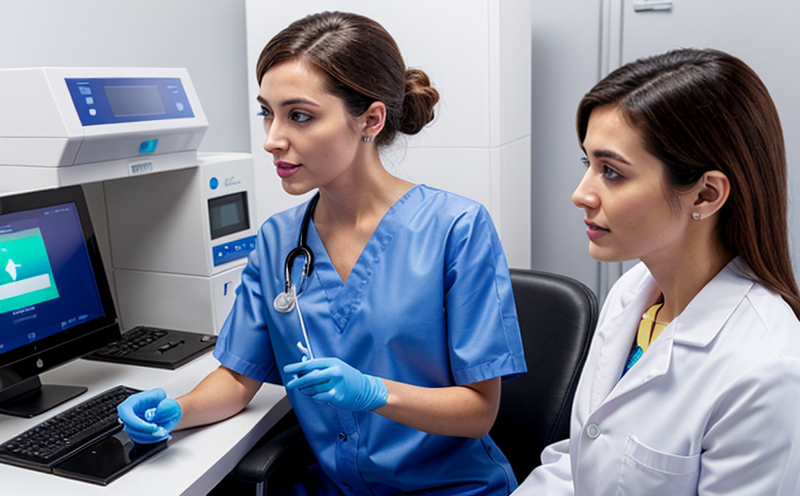PCR Testing for Cryptosporidium in Drinking Water
In recent years, the demand for accurate and reliable methods to detect cryptosporidiosis has grown significantly. Cryptosporidium is a parasitic protozoan that can cause severe gastrointestinal illness in humans, with symptoms including diarrhea, nausea, vomiting, and fever.
PCR (Polymerase Chain Reaction) testing has emerged as one of the most effective methods for identifying Cryptosporidium in drinking water. This technology allows laboratories to detect even trace amounts of the parasite within a sample, providing critical information about potential contamination levels and public health risks.
The PCR process involves several key steps: DNA extraction from the water samples, amplification using specific primers targeting the 18S rRNA gene of Cryptosporidium, followed by detection through electrophoresis or real-time qPCR instruments. The specificity and sensitivity of this technique make it an invaluable tool for environmental monitoring.
Once a sample is collected, it undergoes rigorous quality control measures to ensure accurate results. Samples are typically analyzed using Real-Time PCR machines which provide quantitative data on the presence and concentration levels of Cryptosporidium DNA fragments in the water matrix.
The test follows stringent protocols outlined by international standards such as ISO 16140-3:2015, ensuring consistency across different laboratories worldwide. Compliance with these guidelines is crucial for maintaining high standards of accuracy and reliability when performing molecular diagnostics on drinking water samples.
By employing PCR technology, we can provide detailed reports detailing the presence or absence of Cryptosporidium DNA in your drinking water supply, along with quantification if applicable. Our lab adheres strictly to best practices ensuring that all tests are conducted accurately and efficiently.
Our expertise lies not only in executing these tests but also interpreting their results so you understand what they mean for your organization’s operations or product quality assurance efforts. We offer comprehensive support from sample preparation through final analysis, ensuring every step is handled with precision and care.
In summary, PCR testing for Cryptosporidium provides an efficient means of monitoring drinking water safety by detecting the presence of potentially harmful pathogens early enough to take corrective action before they become widespread issues within communities. With our advanced facilities and experienced staff, we are committed to delivering reliable data that contributes towards safer drinking water supplies globally.
Why Choose This Test
The decision to use PCR testing for Cryptosporidium in drinking water is driven by several important factors. First and foremost, this method offers unparalleled accuracy and sensitivity compared to traditional methods like microscopy or filtration techniques which may miss low concentrations of the parasite.
Secondly, PCR testing can be performed quickly, typically yielding results within 24-72 hours depending on the complexity of the sample and the volume being tested. This speed is crucial for prompt intervention measures to be taken if contamination is detected.
A third advantage is its ability to differentiate between various species of Cryptosporidium present in a given water source, allowing for more targeted treatment strategies where necessary.
Additionally, PCR testing helps maintain compliance with regulatory requirements set forth by organizations such as the World Health Organization (WHO), U.S. Environmental Protection Agency (EPA), and other relevant bodies responsible for setting standards for drinking water safety worldwide.
The reliability of PCR tests has been validated through numerous studies conducted across different geographical regions, making it a trusted choice among professionals involved in environmental health and sanitation.
Environmental and Sustainability Contributions
Implementing effective monitoring programs for Cryptosporidium in drinking water contributes significantly to both environmental protection and sustainability initiatives. By identifying early signs of contamination, we can prevent the spread of disease among human populations while also protecting aquatic ecosystems from further harm.
The ability to detect even minute traces of Cryptosporidium ensures that treatment processes are adjusted appropriately, thereby reducing unnecessary chemical usage which could otherwise negatively impact local water bodies if left untreated.
Moreover, regular testing helps identify trends over time, enabling proactive management strategies aimed at maintaining long-term water quality standards. This approach not only enhances public health but also promotes responsible stewardship of natural resources by minimizing environmental footprints associated with improper waste disposal practices.
Adhering to strict protocols ensures that our services contribute positively towards sustainable development goals aligned with United Nations Sustainable Development Goal 6 (SDG6) – ensuring availability and sustainable management of water and sanitation for all. By providing reliable data on Cryptosporidium levels, we empower stakeholders to make informed decisions regarding resource allocation and conservation efforts.
Use Cases and Application Examples
| Use Case | Description |
|---|---|
| Water Treatment Facilities | Monitoring compliance with regulatory requirements for drinking water safety. |
| Public Health Authorities | Responding to outbreaks of cryptosporidiosis by identifying contaminated sources promptly. |
| Research Institutions | Investigating the prevalence and distribution patterns of Cryptosporidium in different geographical areas. |
| Application Example | Description |
|---|---|
| Water Utility Company | A water utility company contracted our services to monitor its supply chain for potential contamination. Our PCR tests revealed traces of Cryptosporidium in one particular source, prompting immediate corrective actions that prevented widespread outbreak. |
| Healthcare Providers | An academic hospital partnered with us to conduct research on the effectiveness of various disinfection methods against Cryptosporidium. The results provided valuable insights into best practices for preventing transmission within healthcare settings. |





